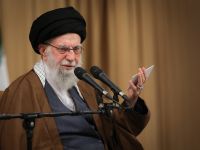Georgetown Experts at QF Predict Economic Future of the Region in Final Pandemic Panel
Qatar’s response to the pandemic has inspired a high level of confidence in the government, and resulted in the social unification of a community working together to fight the effects of the crisis. This analysis was shared in the third installment of QF partner Georgetown University in Qatar’s Pandemic Panels, a three part series of virtual discussions featuring GU-Q faculty experts and moderated by the dean, Dr. Ahmad Dallal.
The third and final panel investigated the types of global pressures that influence regional responses and how these set the nations of the Gulf, Middle East, and North Africa on a path to pandemic recovery.
Panelists included Dr. Rogaia Abusharaf, Professor of Anthropology, Dr. Alexis Antoniades, Professor and Director of International Economics, Dr. Rory Miller, Professor of Government, and Dr. Gerd Nonneman, Professor of International Relations and Gulf Studies.
Dr. Rory Miller, who teaches courses on small state security at GU-Q, provided context for Qatar’s pandemic response, noting that small states like Qatar are better equipped to quickly build social cohesion and institutions, and make rapid decisions. “You see all of these factors coming into play in Qatar's response.” So despite the number of cases per million, “there's still a confidence in all levels of society that they have the structures in place and the decision-making capabilities to deal with it.” While some states would be able to emerge from the crisis in better shape than others, he concluded, “there are few opportunities to come out of this in a positive light.”
Dr. Gerd Nonneman focused on the role and future of a GCC, one of his areas of expertise, which continues to be fractured under the blockade, saying: “It would be very important, ideally, to have a coherent GCC framework to have a collective response economically and in terms of health arrangements and logistics and food security, but there isn't.”
With the crisis depressing economies and sending unemployed laborers home, Dr. Nonneman also stressed the risk posed by the secondary effects of the crisis on less developed parts of the Middle East, highlighting aid and investment from Gulf neighbors as a possible mitigating strategy.
A specialist on the countries that comprise the Indian Ocean rim, Dr. Rogaia Abusharaf discussed the ways the crisis has exposed the fragility of neglected health systems and spurred regional political action, saying: “you will see cooperation and competition highlighted and amplified as a result of the pandemic.” Touching on the gender inequalities and domestic violence reported by multiple agencies working on women’s issues, Dr. Abusharaf noted that “the pandemic didn't introduce such domestic violence, but exasperated it."
In his analysis of the future outlook of the region’s economies, economics expert Dr. Antoniades described concerns over the recovery timeline as “the trillion dollar question.” He explained that “what market participants are trying to assess is whether the easing of the lockdown restrictions on some countries and the gradual opening of some businesses will succeed or if it will derail the progress made over the past few weeks in controlling the spread of the virus.” In a post-crisis world, he said, markets would see major innovations inspired by changes in consumer behavior. “How states are dealing with the crisis now will have a long lasting impact on the ground well after the Corona crisis ends.”
The GU-Q Pandemic Panels including a full list of the participating scholars are available for viewing on www.qatar.georgetown.edu/pandemicpanels .
Background Information
Georgetown University in Qatar
Established in 1789 in Washington, DC, Georgetown University is one of the world’s leading academic and research institutions. Georgetown University in Qatar (GU-Q), founded in 2005 in partnership with Qatar Foundation, seeks to build upon the world-class reputation of the university through education, research, and service. Inspired by the university’s mission of promoting intellectual, ethical, and spiritual understanding, GU-Q aims to advance knowledge and provide students and the community with a holistic educational experience that produces global citizens committed to the service of humankind.
Located in Doha’s Education City, GU-Q offers the same internationally recognized Bachelor of Science in Foreign Service degree as Georgetown’s Capitol Campus in Washington, DC. This unique, interdisciplinary program prepares students to tackle the most important and pressing global issues by helping them develop critical thinking, analytic, and communication skills within an international context. GU-Q alumni work in leading local and international organizations across industries ranging from finance to energy, education, and media. The Qatar campus also serves as a residency and delivery location for the Executive Master’s in Emergency and Disaster Management along with the Executive Master’s in Leadership.






